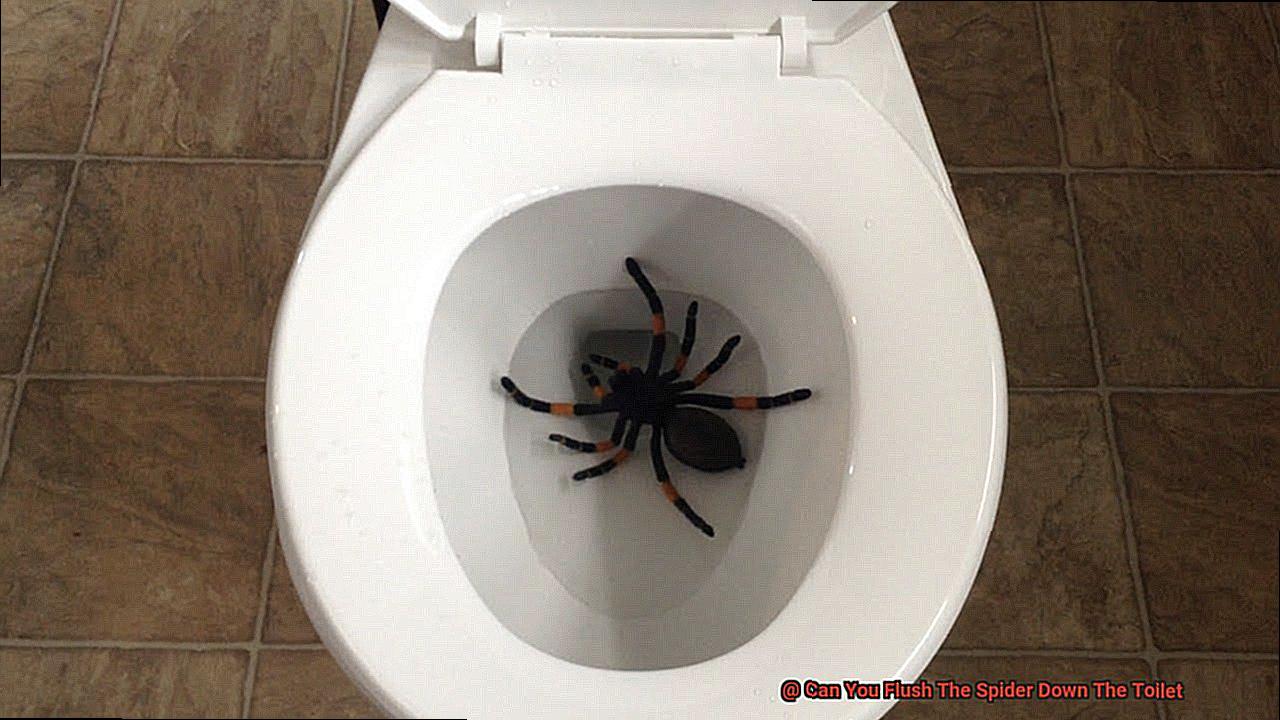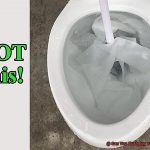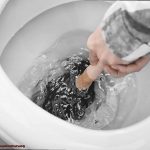Are you one of the many people who feel a shiver down their spine at the sight of a spider? Do you immediately think of squishing it or flushing it down the toilet? Well, before you take any drastic measures, let’s explore the question: can you flush the spider down the toilet?
It’s not as simple as a yes or no answer. Spiders are known for their resilience and can survive being flushed down a toilet. However, we need to consider the potential impact on both our plumbing system and the environment.
In this blog post, we’ll delve into the science behind spiders’ survival skills, discuss why they’re important in controlling insect populations and are generally harmless to humans. Did you know that flushing a spider down your toilet could cause damage to your plumbing system and harm aquatic life?
So before you reach for that toilet handle or grab your shoe, let’s explore some alternative methods for safely and humanely removing spiders from your home. Join us as we dive into this fascinating topic and learn how to coexist with these eight-legged creatures.
Contents
- 1 Reasons Why Flushing a Spider Down the Toilet is Not Recommended
- 2 Alternative Methods for Dealing with Spiders
- 3 Tips for Preventing Infestations of Spiders in Your Home
- 3.1 Keep Your Home Clean and Clutter-Free to Avoid Spider Infestations
- 3.2 Seal Cracks and Holes to Prevent Spiders from Entering Your Home
- 3.3 Keep Outdoor Lights Off to Avoid Attracting Insects and Spiders
- 3.4 Use Natural Remedies to Repel Spiders
- 3.5 Keep Trees and Shrubs Trimmed to Prevent Spider Infestations
- 4 Common Types of Spiders Found in Homes
- 5 Conclusion
Reasons Why Flushing a Spider Down the Toilet is Not Recommended
While it may seem like an easy solution, there are several reasons why this method of getting rid of spiders is a bad idea.
It is Inhumane
Spiders are living creatures and deserve to be treated with respect and compassion. Flushing them down the toilet is a cruel and inhumane way to dispose of them. Instead of resorting to such harsh methods, consider more humane options for spider removal.
It May Not Work
Many species of spiders can survive underwater for extended periods of time. This means that flushing them down the toilet may not even work as a means of getting rid of them. The spider could potentially crawl back up through the pipes and into your home, resulting in an even more unpleasant encounter later on.
It Can Damage Your Plumbing System
Spiders have long legs and bodies that can easily become tangled in the pipes. This can cause blockages, leading to clogs and other plumbing issues that can be costly to repair and cause inconvenience for you and your family.
It is Bad for the Environment
Flushing anything down the toilet ultimately ends up in our waterways and can negatively impact aquatic life. This includes spiders, which can disrupt the delicate balance of our ecosystem. It is important to be mindful of our actions and their potential consequences on the environment.
Spiders are Beneficial
Lastly, it’s important to remember that spiders aren’t all bad. They actually help to control the population of other pests such as mosquitoes and flies. Instead of trying to get rid of them, consider relocating them outside where they can continue to do their job without causing any harm.
In conclusion, flushing a spider down the toilet is not recommended for several reasons. Instead, consider more humane options for spider removal that are effective, safe, and do not cause harm to our plumbing or environment.
Most Spiders Can Survive Submersion in Water
It’s a fascinating topic, and the answer lies in their specialized respiratory systems. Unlike mammals, spiders don’t have lungs. Instead, they have book lungs or tracheae that allow them to breathe air even when submerged in water.
Book lungs are a marvel of nature. They’re a series of thin, flat plates stacked together like the pages of a book. These plates have blood vessels that absorb oxygen from the air. Tracheae, on the other hand, are tubes that run through the spider’s body and deliver oxygen directly to its tissues.
When a spider is submerged in water, it can hold its breath by trapping air bubbles on its body. It will then use these air bubbles to breathe until it can reach the surface again. This adaptation allows most spiders to survive in water for short periods of time, and some species can even survive for several hours.
However, it’s important to note that not all spiders can survive submersion in water. Some species are better adapted to life on land and may drown if submerged for too long. Additionally, young or immature spiders may be more vulnerable to drowning as they might not have fully developed respiratory systems.
Potential Damage to Plumbing System
While it may seem like an easy solution, it can lead to potential damage to your plumbing system. Spiders are tough creatures that aren’t easily broken down by the water treatment process, which can cause blockages in your pipes and lead to expensive repairs.
But it’s not just spiders that can cause damage to your plumbing system by flushing them down the toilet. Pipes in your home are designed to handle human waste and toilet paper only. Flushing non-biodegradable items like paper towels, feminine hygiene products, and even hair can also cause blockages and result in costly repairs.
In addition to causing damage to your plumbing system, flushing spiders down the toilet can also harm the environment. Wastewater treatment plants are not equipped to handle non-biodegradable items like spiders, which can lead to pollution in our waterways.
It’s important to remember that spiders play an important role in our ecosystem. They help control other pests like mosquitoes and flies. Instead of flushing them down the toilet, try catching them with a cup or jar and releasing them outside. This humane approach not only avoids potential damage to your plumbing system but also helps maintain the natural balance of our ecosystem.
Spiders are Beneficial Creatures to Have Around Your Home
It’s time to change your perception and realize that spiders are actually one of the most helpful creatures to have around your home.
Firstly, spiders serve as natural pest control. They feed on unwanted insects like mosquitoes, flies, and cockroaches, which can be harmful to humans and even damage your home. According to a study published in the Journal of Arachnology, spiders can reduce the number of insects in homes by up to 75%. That’s a lot of potential pests that you don’t have to worry about.
But that’s not all. Spiders themselves are not harmful to humans. While some species do have venomous bites, they are typically not aggressive towards humans and will only bite if they feel threatened or cornered. Most spider bites result in only minor irritation or discomfort, similar to a mosquito bite.
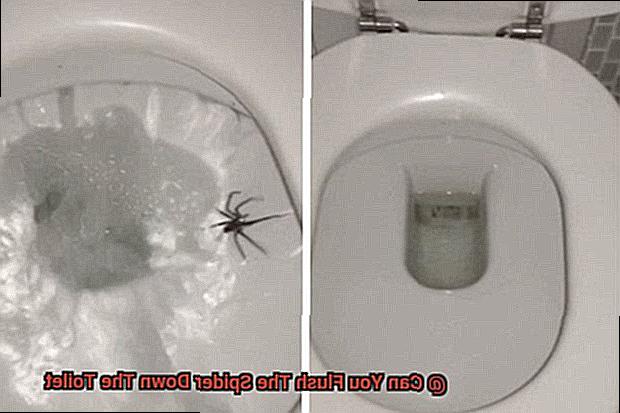
So why do so many people fear spiders? Perhaps it’s due to their creepy appearance or their unpredictable movements. But it’s important to remember that spiders are not out to get us – they’re just doing their job as natural pest control.
Before you reach for the bug spray or try to flush a spider down the toilet, consider this: getting rid of them can actually be harmful to the environment. Flushing them down the toilet, for example, can lead to costly repairs and environmental pollution. Instead, try catching and releasing them outside.
Alternative Methods for Dealing with Spiders
Many people are afraid of spiders, but these creepy crawlies actually play an important role in our ecosystem. They act as natural pest control and reduce the number of potential pests by up to 75%. So instead of reaching for the bug spray or flushing them down the toilet, consider using one of these alternative methods for dealing with spiders that are both safe and humane.
One easy option is to use a cup and paper to trap the spider and release it outside. This method takes a few seconds and allows the spider to continue living without harming anyone. Alternatively, if you have a vacuum cleaner with a hose attachment, you can gently suck up the spider and release it outside. Just remember to use a low power setting to avoid injuring the spider.
For those who want a more permanent solution, there are various spider repellents available on the market. These can come in the form of sprays, oils, or electronic devices that emit sound waves that spiders find unpleasant. However, it’s important to note that while these repellents may work for some people, they may not be effective for everyone.
If you’re looking for a natural solution, there are also various essential oils and herbs that spiders dislike. Peppermint oil, eucalyptus oil, and lavender are all known to repel spiders. You can also plant herbs like mint, rosemary, or lemongrass near windows and doors to keep spiders away.
Remember, spiders play an important role in our ecosystem and should be treated with respect. Instead of killing them or flushing them down the toilet, try one of these alternative methods for dealing with spiders.
Trapping and Relocating Outside
Expertly trapping and relocating spiders outside your home is a humane way to coexist with these fascinating creatures. However, it requires patience and careful handling to avoid harming the spider or getting bitten. With these tips, you’ll be able to safely and confidently remove spiders from your home.
Firstly, grab a jar or container and a piece of paper or cardboard. Approach the spider slowly and gently place the container over it. Remember not to touch or handle the spider directly as this may agitate it and increase the risk of being bitten.
Once you have trapped the spider inside the container, carefully slide the paper or cardboard under it to keep the spider secure within. Make sure that the container is sealed tightly so that the spider can’t escape during transportation.
When you have safely trapped the spider, take it outside and release it far enough from your home so that it won’t come back inside. Choose a location carefully where the spider has access to food and shelter.
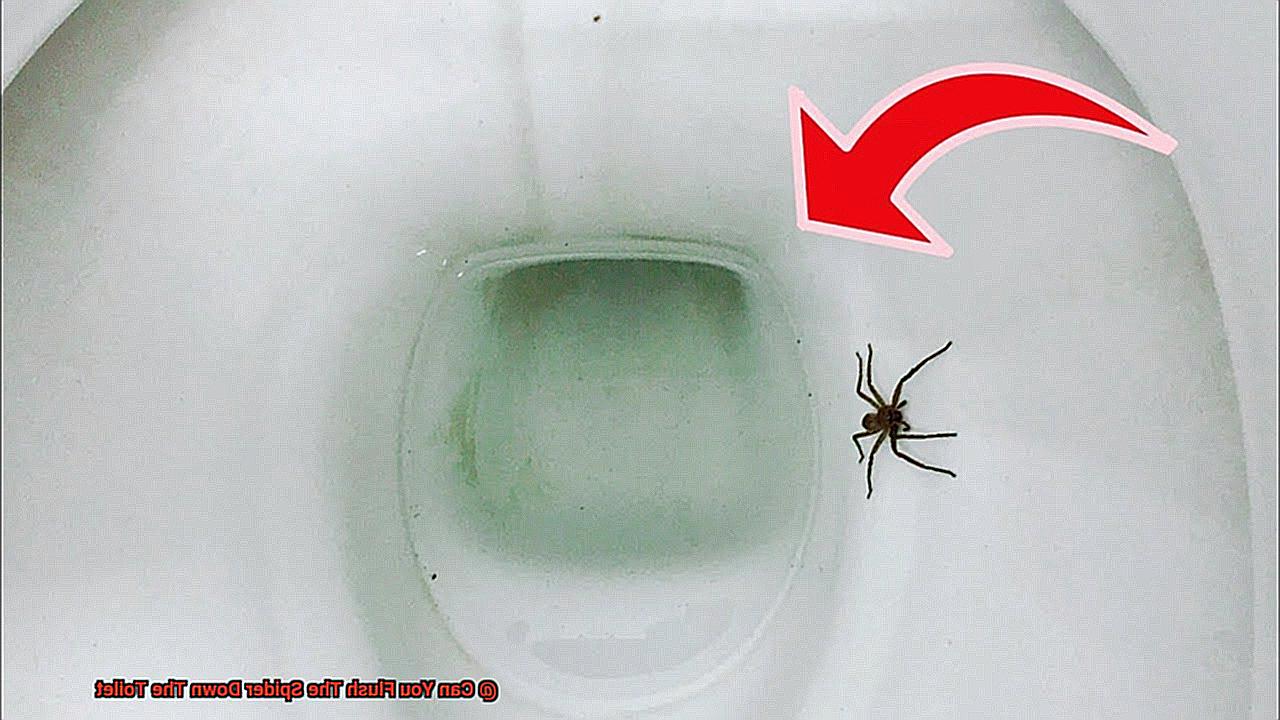
It’s crucial to note that not all spiders can survive in the wild, especially if they are not native to your area. In such cases, relocating them may not be a viable solution. Additionally, some spiders can be dangerous, so it’s essential to identify them correctly before attempting to trap or relocate them.
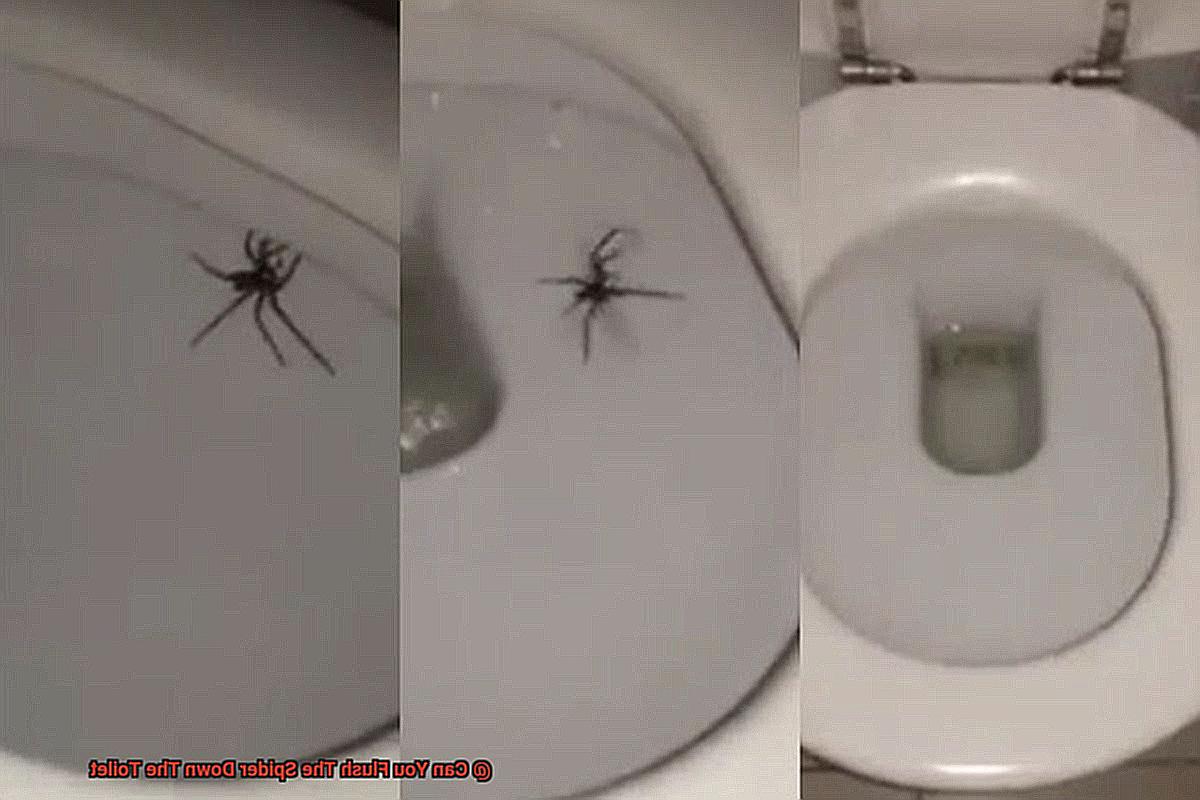
Overall, trapping and relocating spiders outside is a humane solution for those who do not wish to harm them.
Professional Pest Control Services
DIY methods may seem like a quick fix, but they can be ineffective and even hazardous. Fortunately, professional pest control services are here to help.
One of the biggest advantages of using professional pest control services is their ability to accurately identify the type of pest in your home. Different pests require different treatment methods, and a professional technician can determine the best approach for eliminating them.
In addition to their expertise, professional pest control services have access to more potent and effective pesticides than those available to the general public. These products are often reserved for licensed professionals and are much more effective at eliminating pests than those available in stores.
But that’s not all. Professional pest control services also offer ongoing maintenance and prevention services to ensure your home remains pest-free long after the initial infestation has been treated. Technicians can identify potential entry points for pests and take steps to seal them off, preventing future infestations.
While DIY methods may seem cost-effective, they often fall short when it comes to effectively treating pest infestations. Professional pest control services offer a comprehensive and long-lasting solution that is well worth the investment.
Tips for Preventing Infestations of Spiders in Your Home
Keep Your Home Clean and Clutter-Free to Avoid Spider Infestations
It’s essential to keep your home clean and organized to prevent spider infestations. Spiders love hiding in dark and cluttered areas such as corners, closets, and other hidden areas. Regularly vacuuming and dusting your home can make it less attractive to spiders and ensure a comfortable living space.
Seal Cracks and Holes to Prevent Spiders from Entering Your Home
Spiders can enter your home through even the tiniest cracks and holes. To prevent them from entering your home, inspect your home regularly for any openings and seal them up with caulk or weatherstripping. By doing so, you’ll keep spiders outside where they belong.
Keep Outdoor Lights Off to Avoid Attracting Insects and Spiders
Lights attract insects, which in turn attract spiders. It’s tempting to leave outdoor lights on at night, but it may cause unwanted visitors. Consider using yellow or sodium vapor lights that are less attractive to insects or keeping outdoor lights off at night. By doing so, you’ll avoid attracting spiders to your property.
Use Natural Remedies to Repel Spiders
Are you tired of using harsh chemicals to repel spiders? There are many natural remedies you can use instead. Citrus peels, vinegar, and essential oils like peppermint, lavender, and tea tree are all excellent options. Add a few drops of these oils to a spray bottle filled with water and spray around your home. It’s an easy way to freshen up your living space while keeping spiders away.
Keep Trees and Shrubs Trimmed to Prevent Spider Infestations
Spiders can use trees and shrubs as a bridge to get into your home. That’s why it’s crucial to keep them trimmed back so they don’t touch your house. By doing so, you’ll make it more difficult for spiders to enter your home, and you’ll avoid the need to flush them down the toilet.
By following these tips, you can prevent spider infestations in your home and ensure a safe and comfortable living space. Remember, prevention is key when it comes to keeping spiders at bay. So keep your home clean, seal cracks and holes, keep outdoor lights off, use natural remedies, and keep trees and shrubs trimmed.
Common Types of Spiders Found in Homes
Spiders are a common sight in our homes, but not all of them are harmless. Some spiders can cause mild to severe pain, while others can be deadly. To keep you and your family safe, it’s important to identify the type of spider before attempting to remove it. In this post, we’ll explore the common types of spiders found in homes and what you need to know about them.
First up is the American house spider, one of the most commonly found spiders in homes. These small brownish-gray spiders can be found weaving webs in corners and crevices. While they are not dangerous to humans, their webs can become unsightly and difficult to clean. If you’re dealing with an American house spider infestation, keeping your home clean and clutter-free is the best way to discourage them from making themselves at home.
Next is the yellow sac spider, another common house spider found in North America. They are typically pale yellow or green in color and can be mistaken for harmless household spiders. However, their bite can cause mild to moderate pain and swelling. If you suspect you’ve been bitten by a yellow sac spider, seek medical attention if symptoms persist.
Wolf spiders are also frequently found in homes. These large, hairy spiders have an intimidating appearance that often gets them mistaken for tarantulas. They typically scurry along walls and floors and their bites can be painful and cause swelling. While their bite is not venomous, it’s best to avoid contact with them.
Lastly, we have the black widow spider, one of the most dangerous spiders found in North America. These spiders have a distinctive black body with a red hourglass shape on their abdomen.
Their venom can cause severe pain, muscle cramps, and even death in extreme cases. If you suspect you’ve encountered a black widow spider, contact a professional for removal immediately.
Conclusion
Flushing a spider down the toilet may seem like an easy solution, but it’s not as simple as it sounds.
While some spiders may be small enough to go down the drain, others can get stuck and cause blockages in your plumbing system. Additionally, it’s not a humane way to deal with the spider.
Remember, spiders play an important role in our ecosystem and deserve our respect.

